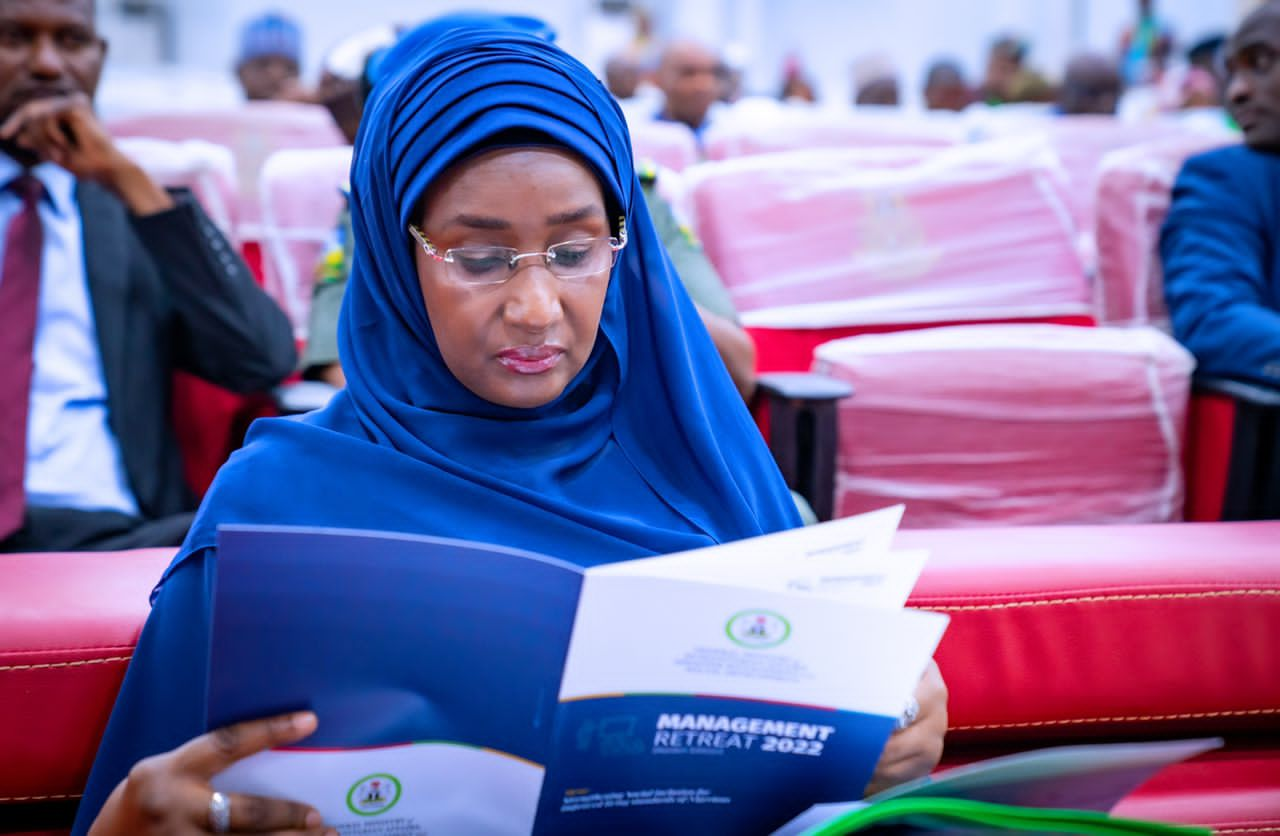By Joyce Remi-Babayeju
The Federal Executive Council has given it’s nod to the National Social Investment Programme (Establishment) Bill, 2022 and the Emergency Response Plan
The Council presided over by President Muhammadu Buhari at its meeting on Wednesday Sept 7,2022 resolved that NSIP should be backed by legislation to ensure its continuity and sustainability.
The Bill seeks to establish the National Social Investment Programme Agency for the management and implementation of the National Social Investment Prorgrammes. The Bill if enacted will provide the necessary statutory backing for the existing NSIP under the FMHADMSD.
Speaking to the Council, the Minister of Humanitarian Affairs, Disaster Management and Social Development Sadiya Umar Farouq described NSIP as a reliable tool for solving poverty problems in Nigeria.
“NSIP serves as an enduring legacy of this administration and is necessary to be backed by legislation at this time. Thus, the urgent need for Council to approve the NSIP Bill which seeks to provide statutory backing as conceptualized and established by this Administration.
“The NSIP is directly and indirectly impacting the lives of poor Nigerians through its four cluster programmes namely: the N-POWER Programme, the Government Enterprise and Empowerment Programme (GEEP), the National Home-Grown School Feeding Programme (NHGSFP) and the Conditional Cash Transfer Programme (CCT).”
According to the minister, these programmes are designed to serve as various forms of social safety nets specifically targeting those at the bottom of the social ladder or those who require some form of support to enable them to become productive members of the society and finally prevent more people from falling below the poverty line.
The submission is to create the National Social Investment Programme as an agency, in line with Mr President’s agenda to lift 100 million Nigerians out of poverty by the year 2030, she emphasized.
NSIP will be implemented in full partnership with all the 36 State Governments and the FCT while Council also approved acceptable source of funding for NSIP through a budgetary allocation and 5% of recovered and repatriated funds .
Also the the Council approved the
National Flood Emergency Preparedness and Response Plan for the nation.
According to Minister, the plan is expected to help build resilience of Nigerian communities to severe flood incidences by providing a common and strategic reference point for flood planning and response for all the tiers of government, response organizations and most vulnerable communities.
The Plan promotes risk reduction through early warning and early action arrangements and effective use of technology for forecasting and surveillance by mandated organizations. The strategic outcomes of the plan are that the nation is more resilient to future flood events, effective responses to flood events and an improved understanding of the wider impacts of flood on national development, she explained.
She further noted that when the plan is enacted into law it will ensure that all relevant MDAs understand their roles and responsibilities before, during and after flood incidences, establish clear threshold for flood emergency response arrangements,
provide clarity on the means of improving resilience and minimizing the impact of flood events and establish short, medium and long-term asset that will provide continuous improvement in flood emergency management in Nigeria.
The minister also confirmed that the Bills will now be sent to the National Assembly for legislation and passage to law.

Leave a Reply